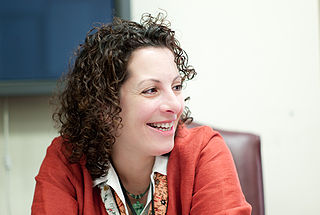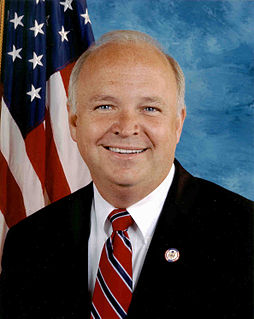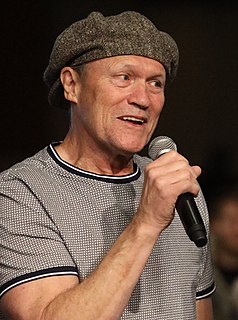A Quote by Jaron Lanier
As information technology becomes millions of times more powerful, any particular use of it becomes correspondingly cheaper. Thus, it has become commonplace to expect online services (not just news, but 21st century treats like search or social networking) to be given for free, or rather, in exchange for acquiescence to being spied on.
Quote Topics
Acquiescence
Any
Become
Becomes
Being
Century
Cheaper
Commonplace
Exchange
Expect
Free
Given
Information
Information Technology
Just
Like
Millions
More
More Power
Networking
News
Online
Particular
Powerful
Rather
Search
Services
Social
Social Network
Social Networking
Technology
Thus
Times
Treats
Use
Related Quotes
The more you enter, the more you become locked in. Your social-networking site becomes a central platform - a closed silo of content, and one that does not give you full control over your information in it. The more this kind of architecture gains widespread use, the more the Web becomes fragmented, and the less we enjoy a single, universal information space.
At the turn of the [21st] century it was really Sergey Brin at Google who just had the thought of, well, if we give away all the information services, but we make money from advertising, we can make information free and still have capitalism. But the problem with that is it reneges on the social contract where people still participate in the formal economy. And it's a kind of capitalism that's totally self-defeating because it's so narrow. It's a winner-take-all capitalism that's not sustaining.
The E-government cabinet, E-health services, online voting, online pre-filled tax returns, e-mobile parking, are all examples of Estonian innovation, but far more importantly, they are examples of the transformative power of intensive and extensive use of Information Technology in the public sector.
New York's niche is content, and content is becoming more valuable. Just think about what is more valuable: MTV or the cable system that you use to get MTV? Howard Stern or the radio station you use to listen to him? Ultimately, technology becomes a commodity, and content - real, true branded content - becomes more valuable.
What if the New York Times gave out free, cheap Kindles to everyone and said this is how we're doing it now. You know? Maybe that's a way to go. The technology gets cheaper and cheaper, and at some point it has to be cheaper than all these trucks and all this gas, to just say, let's give away a Kindle to everyone.
There's always room. That's what the directors usually want. They want the performer to bring themselves and give what they have to give for the role. The smart ones allow that to happen because then it becomes even more organic within the performer's imagination. It becomes even more real. It's not always a given in other films, but when Gunn works, and we all work together in a collaborative way like that, it becomes a given that you bring it. It becomes a lot of fun.
When I go beyond a certain range it's outside of my direct horizon therefore I've got to rely on the writings and personal communications given to me by other people that I know.... I've got to try to piece together some tentative information picture of what the whole thing is like, but I'm aware that it becomes more and more speculative as it becomes more and more second, third, fourth hand. And this applies to absolutely everyone.






































